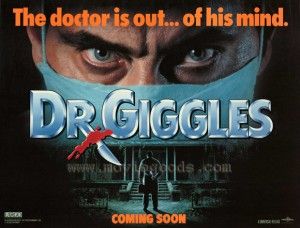Socialized Health Care Back From Grave
By DAVE ROBERTS
Like a bad horror movie in which the monster dies only to come back from the grave, socialized medicine has once again reared its ugly head in California. Not content to wait for Obamacare to kick in, state Sen. Mark Leno, D-San Francisco, has introduced SB 810. It’s a reincarnation of SB 840, a government-run health-care bill authored by Sheila Kuehl that was vetoed in 2008 by then-Gov. Arnold Schwarzenegger.
“According to the Legislative Analyst’s Office, the bill is estimated to cost $210 billion in its first full year of implementation and cause annual shortfalls of $42 billion,” said Schwarzenegger in his veto message. “To place this in proper perspective, our state budget deficit this year started at $24.3 billion.”
The fiscal hemorrhaging from SB 810, which is likely to be looked on more favorably by Gov. Jerry Brown, could be worse, perhaps $250 billion annually, according to the bill’s analysis. Startup costs could be in the hundreds of thousands to millions of dollars. Additional costs would result from the transition to a health care system run by state bureaucrats, including the implementation of a claims payment system, electronic medical records, labor market disruptions, reduced tax revenue and job loss from insurance companies.
Where’s the money going to come from? “Since no revenue source is currently identified, it would be pressure on the state General Fund,” the analysis states. That’s the same General Fund that has been running multi-billion dollar deficits for much of the past decade and which is on track for another $9.2 billion shortfall in the next fiscal year.
“There would be ongoing General Fund pressure in the millions to billions of dollars, because this bill would provide that the General Fund would be responsible for providing loans to the Healthcare Fund in the event of a shortfall or the delayed passage of the state’s annual Budget Act,” the SB 810 analysis states. “This bill would also permit the [health] Commissioner to use reserves and to borrow funds in such a situation and to take cost control measures.”
It would likely result in tax increases. The funding mechanism for Kuehl’s bill would have imposed a 12 percent tax on employers and employees along with another 11.5 percent in unspecified taxes.
Bureaucracy
If you thought the health care system was already bureaucratic, convoluted and confusing, wait until Sacramento takes over. A California Healthcare Agency would be formed along with the Healthcare Policy Board, the Office of Patient Advocacy, the Office of Health Planning, the Office of Health Care Quality, the Healthcare Fund, the Public Advisory Committee, the Payments Board, and the Partnerships for Health.
Few would argue that the current system is not in need of improvement.
Leno pointed out at the Jan. 17 Senate Appropriations Committee meeting that health care premiums have risen five times faster than the inflation rate since 2002. As a result, more employers are cutting back or dropping employee coverage. Employees are picking up more of the costs of premiums along with higher deductibles and co-pays. In the past year, 12 million Californians went without health insurance.
In 1960, the United States spent 5 percent of its gross domestic product on health care. That increased to 11 percent by 2000. Not it’s 17.6 percent of GDP, according to Leno. Without significant reform, the projections are that by 2015 we will be spending 20 percent of GDP on health care. Next: 25 percent by 2025 and 50 percent by 2060.
Leno said the World Health Organization ranks the United States 37th among nations in health care, despite Americans paying twice per capita than higher-rated countries with government-run health care. “So there is money in the system,” he said. “It’s just being wasted on both administrative and clinical waste. That’s what we’re purchasing: bureaucracy and waste instead of health care provision.”
He said costs can be cut through bulk purchasing of medicine and medical equipment. And he dismisses the concern about the impact on the General Fund budget, saying, “This is not a new $200 billion cost to the state of California. It’s the current $200 billion we are spending inefficiently on health care put into a new health plan that will be much more efficient, create greater results, keep Californians healthier and saving us billions of dollars.”
Leftist Support
California’s leftist organizations turned out in such large numbers that it took 17 minutes for all of them to come to the microphone and state their names and affiliations. In comparison, the opposition to the government takeover of a $200 billion industry was paltry.
Mark Burgat, representing the California Chamber of Commerce, said the Chamber disagrees that government systems are more efficient than private businesses, and that a single-payer system would be less costly than the current private system. But he provided no facts to back that up. He also warned about deficits in the tens of billions of dollars annually.
But he said the chamber supports Obamacare: “We believe the federal program is a program that is workable and we are working towards that end. We think that the state and the businesses in the state should focus on that. Trying to implement a California-only one-payer system is simply counter-productive.”
Also supporting Obamacare while opposing Lenocare is Nick Louizos, representing the California Association of Health Plans, who said, “Our industry is appropriately focused on implementing this [Obamacare] law and making it work. We believe the debate around SB 810 is counter-productive to those efforts. And, whether or not the funding is addressed in this bill or some future legislation, the cost of single-payer, as mentioned previously, is massive.”
Small Businesses Snuffed Out
The strongest argument against SB 810 was made by Ken DeVore, representing the National Federation of Independent Business.
“Right now small businesses in California are just struggling to survive,” he said. “Many of them can’t afford health care insurance for themselves, let alone for their employees. This could be the last thing that would drive them out of business, out of state. A study [on Kuehl’s bill] said that it would cost nearly a quarter million jobs in California if it was implemented with the imposition of all of these new costs on businesses. With 2.2 million unemployed in California right now, we just can’t afford something like this at this point in time with an economy that is still faltering.”
Several committee members spoke in favor of the bill; none spoke against it. But due to the need to further analyze the cost impacts on the General Fund, Chairwoman Christine Kehoe, D-San Diego, ushered it into the suspense file with an agreement to vote on the bill today (Thursday, Jan. 19).
Like its predecessor, SB 810 is likely to pass the Legislature and reach the governor’s desk. Leno is optimistic that Brown will sign it, noting that the governor pushed a government-run health plan when he ran for president in 1992. “In the brief conversations I had with him when he was a candidate [for governor in 2010], he does want to sit down, look at the numbers and understand it more clearly that it is, of course, affordable for California,” said Leno.
Related Articles
Strikes for higher minimum wage hit CA, USA
Anti-Walmart protests struck across California and the rest of America on Black Friday. The protesters demanded that the giant retailer
Companies will exploit Cap and Trade
Aug. 9, 2012 By John Seiler Anti-capitalists always complain that entrepreneurs exploit loopholes in all those nice laws liberals and
Legislators Allow Another Enviro "Ransom"
When the word “mitigate” is used repeatedly in a legislative hearing, and written extensively into the summary of the proposed




